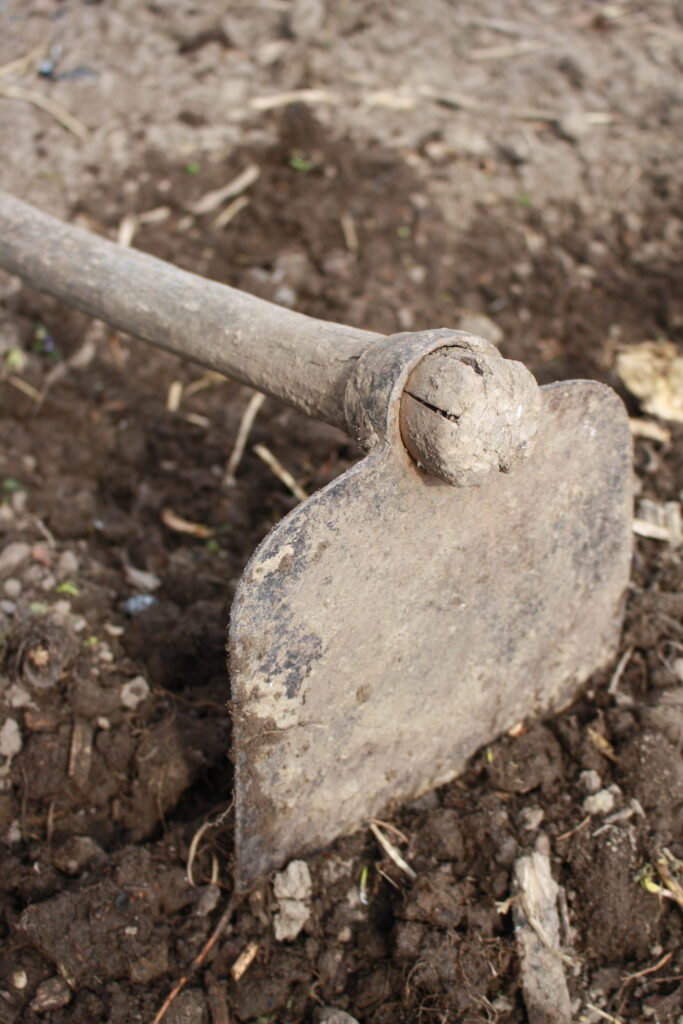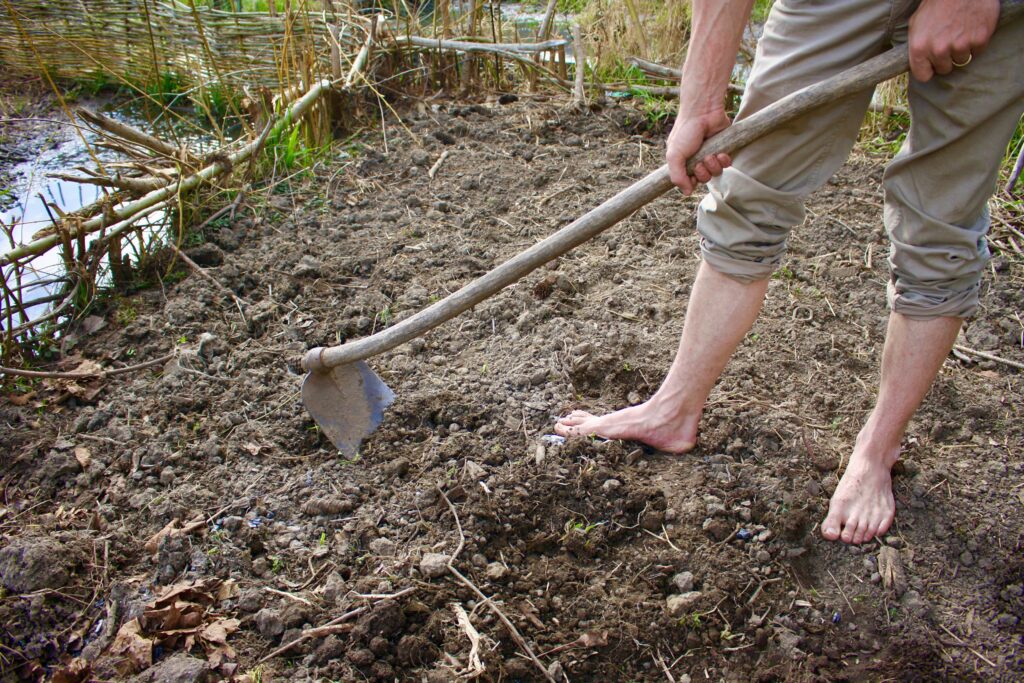The broad-hoe: perhaps it is not often seen in the West these days. However this most basic, but effective tool is still commonly used by the peasant farmer around the world. Stop and consider this tool with me for a spell. There is more to it than you would think.

Don’t be too prissy to get callouses!
This broad-hoe (which growing up we called a mattock) is from Guatemala. I lived there as a teenager for three years. On trips out to the hills, I often saw the Mayan farmers working their fields and terraces with this tool. My father, who always takes interest in how other cultures work the land, bought one to bring back to Wisconsin. Folk in the West commonly associate the farmer with the tractor. However, it was not that long ago that our farmer ancestor would be associated more with the broad-hoe. And indeed, in much of the world, it remains the main tool for many a poor farmer who still is a peasant more by birth and circumstances rather than by the luxury of choice.

The Broad-hoe is more than just a hoe
For lack of a tractor or rototiller on my tiny plot of land, my broad-hoe/mattock is by far my primary tool for tilling the earth. With such a broad blade, it is most useful in:
–breaking fresh sod for a new garden bed
–forming and shaping terraces on a sloped garden
–spring tilling
–scooping up fertile marsh muck for building my swamp garden.
–planting potatoes! (as in the above painting)

The Broad-hoe as a Tool and a Deeper Meaning
At this point in our tiny homestead saga, I do not own any mechanized machinery to help me work the soil. That doesn’t mean that I never will in the future. But for right now, I am content.
Working with this timeless tool makes one to think alot. Consider this:
The Latin root of the word humility is related to humus–“of the earth”. Humility: the virtue that very few of us understand. We claim to understand it. We strive to understand it. But always we fall woefully short of understanding it. You could say it was the virtue we violated when rebelled against the the Garden of Eden. There the first Man and Woman refused to humble themselves and take responsibility for their actions. Rather they pridefully tried to pass on the blame. After they were cast out of the Garden that they had been entrusted to keep, they had to fight weeds to till the soil by the sweat of their brow. Was this to teach us the the deeper meaning of humility, through the work of our hands? ~Nathanael



Leave a Reply